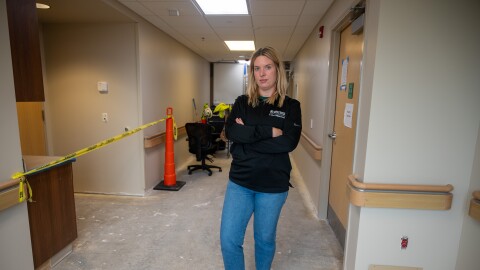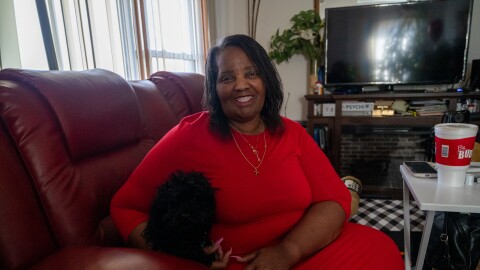-
It’s been an active season for tornadoes and flooding in the Midwest due to various factors like hot and cold jet streams and climate change. This could create lasting public health challenges.
-
Seniors who are hospitalized with even a minor illness or injury are at risk of something called hospital-acquired disability. This puts them at risk of rehospitalizations and a downward spiral that could eventually land them in a nursing home.
-
The infant formula shortage has led some parents to consider informal milk sharing – looking for breast milk donations for their babies from neighbors or people online. But health experts warn the practice comes with risks.
-
Health care providers often rely on digital tools to inform treatment decisions. A growing number of hospitals are moving away from factoring race into kidney disease calculations, after recognizing Black patients could be at a disadvantage.
-
Sickle cell disease is a serious genetic condition that can cause severe pain, strokes and organ failure, affecting mainly people of African descent. Many adults don’t know if they are carrying the sickle cell trait, which can be passed on to children, so medical providers want to raise awareness about the importance of genetic testing.
-
Congress rejected pleas from the White House to pump more money into programs that ensure COVID tests, treatments and vaccines are free for everyone. Public health experts warn the funding cuts will worsen health disparities and hurt those who are already most vulnerable.
-
While cancer death rates in the U.S. have declined in recent years, racial disparities persist. Midwestern states — including Iowa, Illinois, Missouri and Indiana — have some of the highest rates of cancer mortality for Black residents in the country. Public health advocates have worked for years to close the racial gap, but some worry the pandemic will delay progress.
-
As the pandemic drags on, doctors continue to be pulled away from their normal duties to care for COVID patients. For early-career physicians, that means less time for specialized training.
-
COVID has handed society the biggest natural experiment in health and economic equity – and social scientists say the scorecard is far from stellar.
-
Local school board members are on the frontline of what is a health crisis at its core. Some school board members and superintendents across the state speak of a tough spot they’re put in. Some convey a message of confidence that things will be under control soon but others question why public health officials are not making these decisions in the middle of a resurging global pandemic.
-
The COVID-19 pandemic has been stressful on everyone, but health care workers may be affected more than anyone. Some nurses are burnt out and planning to leave the profession. Meanwhile, colleges are preparing new graduates to take their place — and deal with the pressures of the job.
-
In recent weeks, demand for the COVID-19 vaccine in Iowa has declined sharply, but the number of Iowans who have had at least one shot hasn't even reached 70 percent. That's raising concern among public health officials.
















